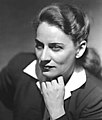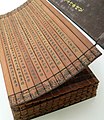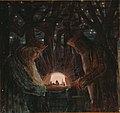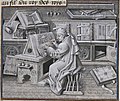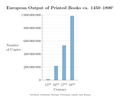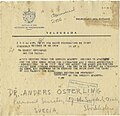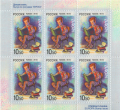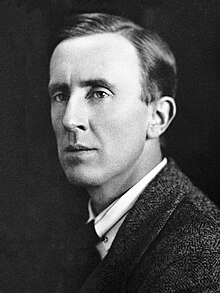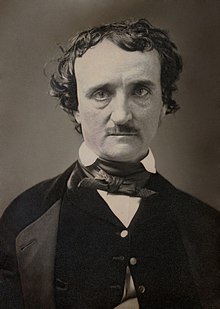Portal:Literature
Introduction

Literature is any collection of written work, but it is also used more narrowly for writings specifically considered to be an art form, especially novels, plays, and poems. It includes both print and digital writing. In recent centuries, the definition has expanded to include oral literature, much of which has been transcribed. Literature is a method of recording, preserving, and transmitting knowledge and entertainment. It can also have a social, psychological, spiritual, or political role.
Literary criticism is one of the oldest academic disciplines, and is concerned with the literary merit or intellectual significance of specific texts. The study of books and other texts as artifacts or traditions is instead encompassed by textual criticism or the history of the book. "Literature", as an art form, is sometimes used synonymously with literary fiction, fiction written with the goal of artistic merit, but can also include works in various non-fiction genres, such as biography, diaries, memoirs, letters, and essays. Within this broader definition, literature includes non-fictional books, articles, or other written information on a particular subject. (Full article...)
General images -
Candide, ou l'Optimisme is a French satire first published in 1759 by Voltaire, a philosopher of the Age of Enlightenment. It begins with a young man, Candide, who is living a sheltered life in an Edenic paradise and being indoctrinated with Leibnizian optimism (or simply Optimism) by his mentor, Pangloss. The work describes the abrupt cessation of this lifestyle, followed by Candide's slow, painful disillusionment as he witnesses and experiences great hardships in the world. Voltaire concludes with Candide, if not rejecting optimism outright, advocating a deeply practical precept, "we must cultivate our garden", in lieu of the Leibnizian mantra of Pangloss, "all is for the best in the best of all possible worlds".
Candide is characterised by its sarcastic tone, as well as by its erratic, fantastical and fast-moving plot. A picaresque novel with a story similar to that of a more serious bildungsroman, it parodies many adventure and romance clichés, the struggles of which are caricatured in a tone that is mordantly matter-of-fact. Still, the events discussed are often based on historical happenings, such as the Seven Years' War and the 1755 Lisbon earthquake. As philosophers of Voltaire's day contended with the problem of evil, so too does Candide in this short novel, albeit more directly and humorously. Voltaire ridicules religion, theologians, governments, armies, philosophies, and philosophers through allegory; most conspicuously, he assaults Leibniz and his optimism.
Selected excerpt
| “ | Reader, I think proper, before we proceed any farther together, to acquaint thee that I intend to digress, through this whole history, as often as I see occasion, of which I am myself a better judge than any pitiful critic whatever; and here I must desire all those critics to mind their own business, and not to intermeddle with affairs or works which no ways concern them; for till they produce the authority by which they are constituted judges, I shall not plead to their jurisdiction. | ” |
| — Henry Fielding, The History of Tom Jones, a Foundling | ||
More Did you know
- ... that the 1993 romance novel Just This Once was authored by a computer in collaboration with its programmer?
- ... that, as a publisher and literary critic, Drago Siliqi increased translation of foreign literature into Albanian and encouraged Ismail Kadare to write his first novel, The General of the Dead Army?
- ... that Charlotte Mary Sanford Barnes' play Octavia Bragaldi moves the Kentucky Tragedy from 1825 to 15th century Milan?
- ... that novelist Shirley Barker's first book of poetry enraged poet Robert Frost?
- ... that Shackles was the first Indonesian novel to portray a prostitute sympathetically?
Selected illustration
Did you know (auto-generated) -

- ... that Bulkboeken ('bulk books') were cheap reprints of Dutch literary classics, published from 1971 to the late 1990s, and again from 2007?
- ... that Walid Daqqa wrote several works of prison literature, including a children's novel about a boy who uses magical olive oil to visit his imprisoned father?
- ... that despite a career writing queer literature, Chen Xue's 2019 novel Fatherless City had a "putatively straight premise"?
- ... that Galadriel's gift of some of her hair to Gimli in The Lord of the Rings has echoes in both English literature and Norse legend?
- ... that The Inland Whale, by Theodora Kroeber, sought to demonstrate the literary merit of Indigenous American oral traditions?
- ... that Emelia Quinn argues that "monstrous vegans" have recurred in literature since Mary Shelley's Frankenstein?
Today in literature
- 1707 - Philibert, comte de Gramont, French writer died
- 1797 - Annette von Droste-Hülshoff, German writer born
- 1811 - Marie-Joseph Chénier, French poet died
- 1866 - Pyotr Pletnyov, Russian poet died
- 1887 - Robinson Jeffers, American poet born
- 1928 - Philip Levine, American poet born
- 1931 - Peter Barnes, English writer born
- 1936 - Stephen Ambrose, American historian born
- 1939 - William Levy, Dutch writer born
- 1951 - Sinclair Lewis, American writer died
- 1953 - Dennis Cooper, American author born
- 1956 - Antonio Muñoz Molina, Spanish writer born
- 1961 - Dashiell Hammett, American writer died
- 1986 - Jaroslav Seifert, Czech writer died
- 2004 - Alexandra Ripley, American author died
Topics
| Literature: | History of literature · History of the book · Literary criticism · Literary theory · Publishing |
| By genre: | Biography · Comedy · Drama · Epic · Erotic · Fable · Fantasy · Historical fiction · Horror · Mystery · Narrative nonfiction · Nonsense · Lyric · Mythopoeia · Poetry · Romance · Satire · Science fiction · Tragedy · Tragicomedy · more... |
| By region: | African literature · Asian · European · Latin American · North American · Oceanic |
| By era: | Ancient literature · Early medieval · Medieval · Renaissance · Early Modern · Modern |
| By century: | 10th century in literature · 11th · 12th · 13th · 14th · 15th · 16th · 17th · 18th · 19th · 20th · 21st |
| Recent: | 2018 in literature· 2017 · 2016 · 2015 · 2014 · 2013 · 2012 · 2011 · 2010 · 2009 · 2008 · 2007 · more... |
Categories
Related portals
| Concepts: | |
| Genres: | |
| Religions: |
Things you can do
Related WikiProjects
WikiProjects related to literature:
| Concepts: | Biographies · Books · Comics · Magazines · Manga · Novels · Poetry · Short stories · Translation studies |
| Genres: | Alternate history · Children's literature · Crime · Fantasy · Horror · Mythology · Romance · Science fiction |
| Authors: | Honoré de Balzac · Roald Dahl · William Shakespeare |
| Series: | Artemis Fowl · Chronicles of Narnia · Discworld · Harry Potter · His Dark Materials · Hitchhiker's Guide to the Galaxy · Inheritance Cycle · James Bond · King Arthur · Middle-earth · Percy Jackson · Redwall · A Series of Unfortunate Events · Shannara · Sherlock Holmes · A Song of Ice and Fire · Star Wars · Sword of Truth · Twilight · Warriors · Water Margin · Wizard of Oz |
| Regions: | Australian literature · Indian literature · Persian literature |
Associated Wikimedia
The following Wikimedia Foundation sister projects provide more on this subject:
-
Commons
Free media repository -
Wikibooks
Free textbooks and manuals -
Wikidata
Free knowledge base -
Wikinews
Free-content news -
Wikiquote
Collection of quotations -
Wikisource
Free-content library -
Wikiversity
Free learning tools -
Wiktionary
Dictionary and thesaurus

